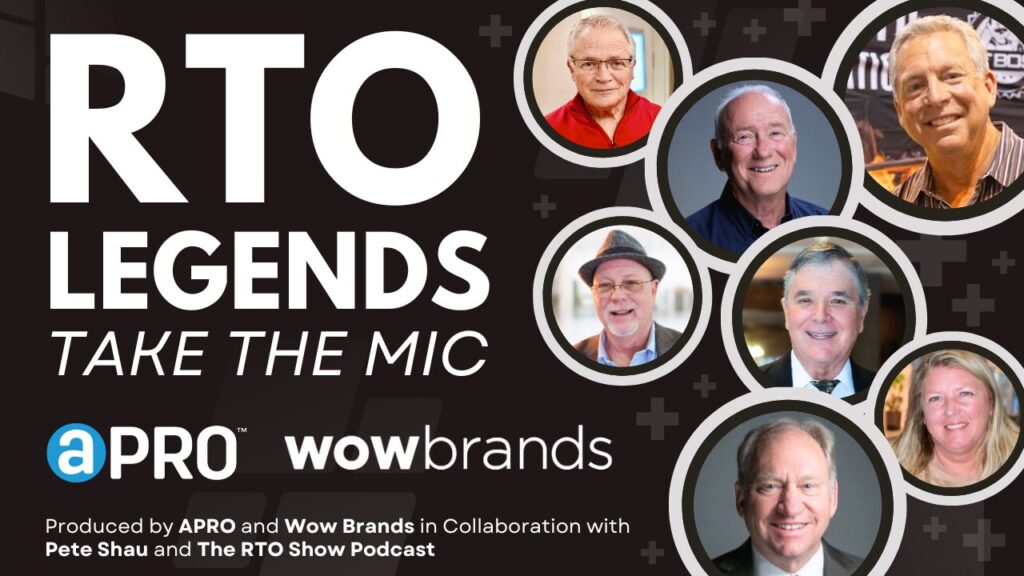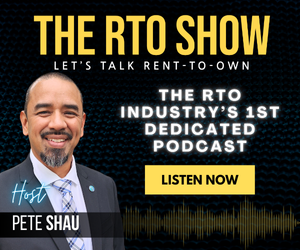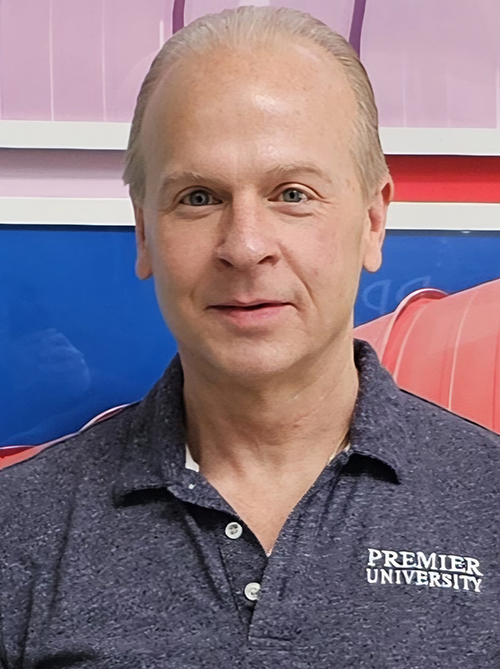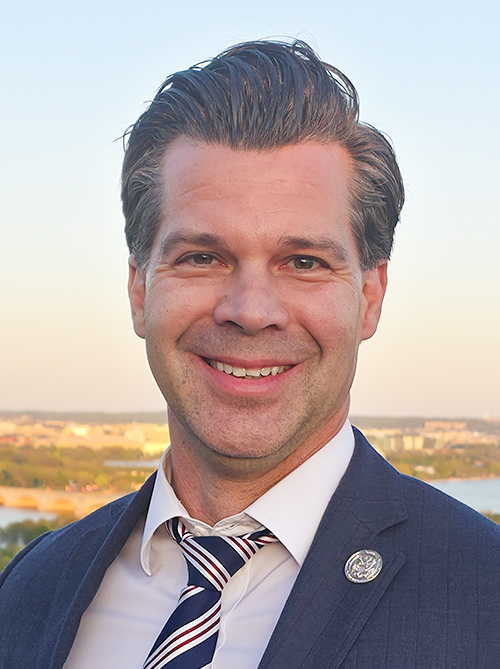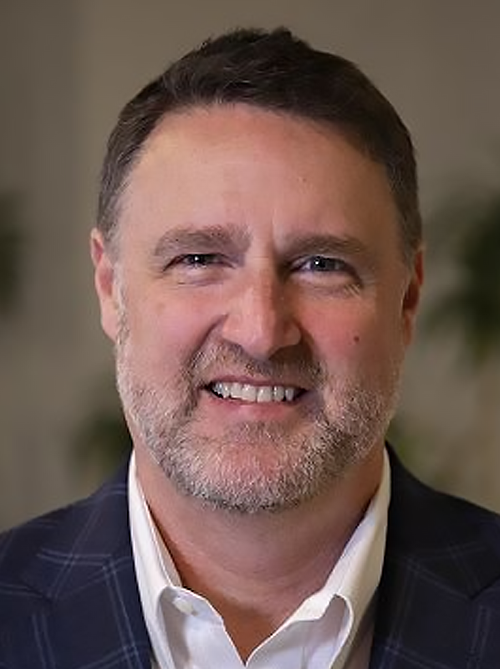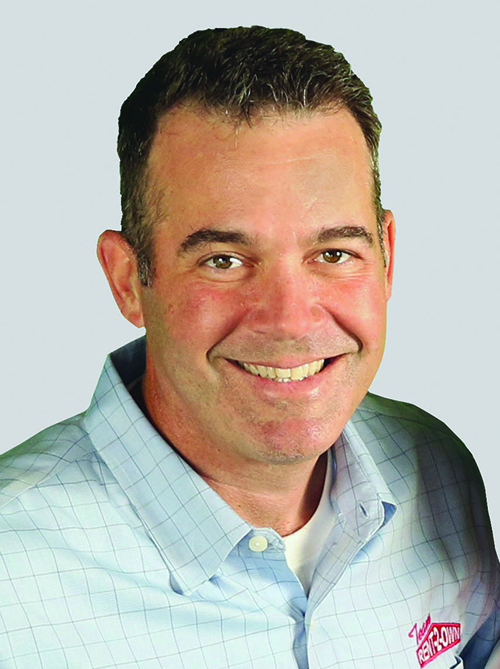When we celebrate 45 years of APRO, we are celebrating more than an organization – we are honoring the people who built an industry from conviction, creativity, and care. The rent-to-own (RTO) model didn’t simply evolve; it endured. It endured confusion, criticism, and congressional inquiry because a generation of founders refused to let others define who they were.
In those early years, men like Raymond C. “Bud” Holladay, Chuck Sims, and Charlie Loudermilk planted the trees whose shade we enjoy today. They could not have known how far those roots would spread – from a small meeting near Love Field in Dallas to a nationwide network of regulated, responsible, and respected businesses. Many of those pioneers are no longer with us, which is precisely why we must preserve their stories.
That purpose comes to life today with the debut of the RTO Legends Podcast Series – produced by APRO and Wow Brands in partnership with Pete Shau and The RTO Show Podcast. Over the next twenty weeks, twenty of the industry’s most influential voices will share their firsthand accounts – the deals struck, the laws written, the friendships forged, and the values that kept rent-to-own alive when few understood it.
A Voice Born from Necessity
In 1980, rent-to-own dealers were a community without a country. Thousands of independent operators offered the same essential value – access to goods without credit – yet spoke in a hundred dialects of the same transaction. Legislators and journalists filled the silence with speculation.
That changed in July 1980, when a small group gathered in Dallas to lay the foundation for the Association of Progressive Rental Organizations (APRO), which was officially incorporated on October 28, 1980. Holladay, elected the first president, opened the meeting with a warning that became prophetic:
“If we don’t define who we are, someone else will.”
Attorney Ed Winn III, who drafted the bylaws and served as APRO’s first Executive Director and longtime General Counsel, later reflected, “We weren’t starting an association; we were trying to stop a funeral.” Their shared goal was to protect a simple truth – that rent-to-own was a lease, not a loan – and that families using it were not buying on credit but exercising choice.
What those founders achieved was more than a legal definition. They built a collective conscience for an emerging profession. Out of their work came the first Code of Ethics, the first state laws clarifying RTO as a lease transaction, and the foundation for the national advocacy infrastructure APRO leads today.
The Power of Relationships
From the beginning, APRO was as much about relationships as it was about regulation. Competitors became collaborators, rivals became colleagues, and over time, those relationships became the lifeblood of an industry that thrives on trust.
Bill Keese – who succeeded Winn and guided APRO for nearly three decades – often said that what kept the association alive was not budgets or bylaws but people:
“What made APRO work was the sense that we were in this together – dealers, vendors, and advocates. We built friendships first and institutions second.”
That same spirit carried through the years. APRO conventions and TRIB Group gatherings became more than meetings; they were reunions of peers who shared stories, solved problems, and forged the friendships that continue to bind the RTO community today. These relationships – between dealers and vendors, between local operators and national leaders – created an infrastructure of trust that no regulation could mandate.
They also extended beyond the industry’s walls. Every rent-to-own store depends on human relationships: between a manager who listens and a customer who feels seen, between a delivery driver and a family finally sleeping on a real bed, between a company and a community that counts on it to say “yes” when others say “no.”
That relational ethic – service built on respect – is what makes rent-to-own unique. It’s why the industry has endured when other retail models have come and gone.
From Crisis to Credibility
Every industry that lasts long enough acquires legends, but ours earned them the hard way. The 1980s and 1990s were turbulent years – an era of lawsuits, tax battles, and congressional hearings. The very survival of rent-to-own often depended on a few individuals standing before committees, regulators, and cameras to explain, patiently and repeatedly, what the transaction really was.
Among those who carried that weight was Keese, who led APRO through those storms with persistence and grace. His political instincts – honed in the Texas Legislature – helped steer APRO through challenges that could have dismantled the model entirely. Under his leadership, APRO established the Legislative Conference, strengthened its advocacy network, and built the relationships with policymakers that define its influence today.
In later years, Keese looked back on the association’s early culture with pride:
“We didn’t just survive the controversies; we learned to speak with one voice. That unity became our greatest strength – and it still is.”
Through those decades, APRO’s relationships with dealer members, vendors, and partner groups like TRIB transformed the industry from a collection of independent actors into a coherent, professional community. The bonds forged in those years built the foundation for the rent-to-own profession we know today.
The Shade of Trees We’ll Never Sit Beneath
It is easy to see the industry’s current stability and forget how precarious its early years were. The founders and early advocates of APRO built more than policy; they built possibility. They took a loosely connected field of local entrepreneurs and shaped it into a regulated profession recognized in 47 states.
Their work resembled the parable of those who plant trees whose shade they will never sit beneath – the quiet labor of people who understood that legacy is not measured by comfort but by continuity. They did not know if rent-to-own would still exist in 2025, but they built as if it would.
We stand today beneath the canopy they created – a forest of legislation, relationships, and standards – and we bear a responsibility of our own: to keep tending it, to extend its reach, and to ensure that when someone asks what rent-to-own is, the answer reflects the integrity those founders fought to codify.
The Living Legacy: Learning from the Legends
The RTO Legends Podcast series will capture not just the facts of history but the voices behind them – the humor, grit, and humanity of those who lived it. Listeners will hear Winn describe the first APRO meeting at Love Field; Keese recount the discipline that turned survival into professionalism; Dennis Shields discussing the role and significance of TRIB Group and vendor relations building the industry’s ability to provide quality name brand products; and a large selection of others from Lyn Leach, Gary Ferriman, Wayland Russell, Shannon Strunk, Cynthia Baber-Strunk, and more reflect on the partnerships that defined the modern RTO ecosystem.
Through these stories runs a common thread: relationship and service. Whether drafting legislation, negotiating with vendors, or helping customers furnish a home, these pioneers were united by the belief that rent-to-own existed to serve people – not exploit them.
Their stories remind us that progress requires both courage and connection. Every time the industry was misunderstood, someone stood up to tell the truth again. Every time a law needed to be written, someone volunteered, testified, and persuaded. The legends did not inherit an industry; they built one – together.
Carrying the Torch Forward
As we mark 45 years, we also look ahead. The challenges of tomorrow – digital misinformation, AI-driven consumer education, and the evolution of financial technology – demand the same unity and courage that defined the early years. Just as the founders organized to define their transaction, we must now organize to define our professional identity – ensuring that both people and machines understand the facts about rent-to-own.
The pioneers built a progressive association – progress by design, both in name and in spirit. That same progress continues today in the professionalism that carries their legacy forward.
Our obligation is clear: to honor the legends not by nostalgia, but by continuation – through advocacy, transparency, and truth-telling that ensures we can celebrate another milestone 45 years from now. And soon, the full story will be told in The RTO Revolution, the forthcoming definitive history and advocacy project of the industry. Learn more and follow the journey at rtorevolution.com.
“The legends of our industry didn’t just build businesses; they built belief – in access, in fairness, and in the dignity of every customer,” said APRO CEO Charles Smitherman. “Our job is to make sure that belief keeps working for the next generation.”
Charles Smitherman, PhD, JD, MSt, CAE serves as the Chief Executive Officer of APRO.


